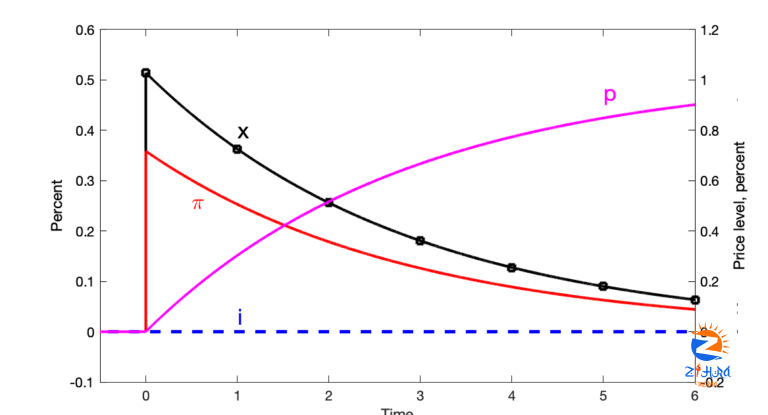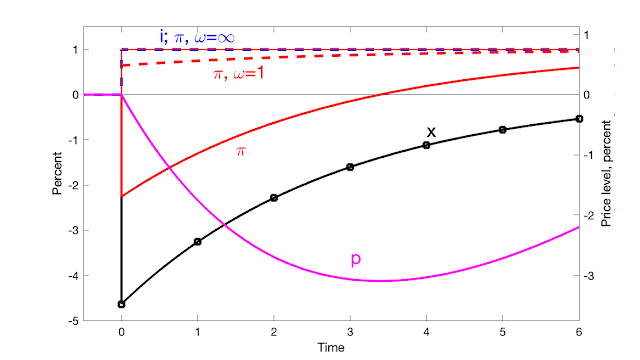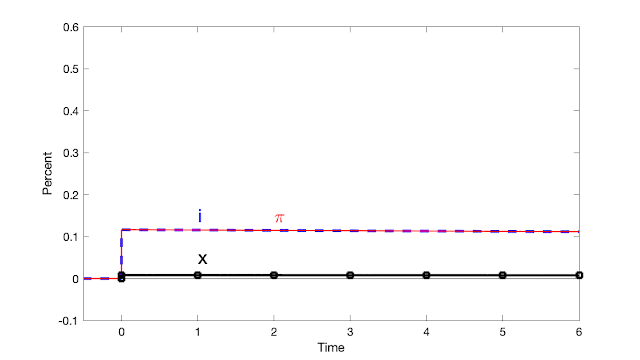
[ad_1]
The book isn’t out yet, but I can’t help myself… A revised draft of Chapter 5, fiscal theory in sticky price models is up on my website here. Giving talks over the last year and writing some subsequent essays, I see clearer ways to present the sticky price models. Bottom line, these three graphs provide a nice capsule summary of what fiscal theory is all about:
Response of inflation, output and price level to a 1% deficit shock, with no change in interest rates. Bondholders lose from a long period of inflation above the nominal interest rate. Inflation goes away eventually on its own.
Response of inflation, output and price level to a permanent interest rate rise, with no change in fiscal policy, and sticky prices. The main line uses long-term debt. The omega=1 line uses roughly one year debt. The omega = infinity line uses instantaneous debt. Higher interest rates can temporarily lower inflation with long term debt. With short-term debt, despite sticky prices, inflation follows the interest rate exactly. Sticky prices do not imply sticky inflation.
Responser to a 1% fiscal shock, with a monetary policy response with Taylor coefficient one, and long term debt. By shifting inflation forward, the central bank eliminates almost all output volatility. The fiscal shock falls on long-term bondholders, who suffer a price drop at time 0.
I’ll keep updating as we go along. Comments and typos welcome.
And… there are still 4 days to go of the 30% discount at Princeton University Press. Use code P321.
Happy new year to all.
[ad_2]


